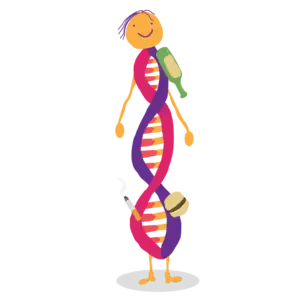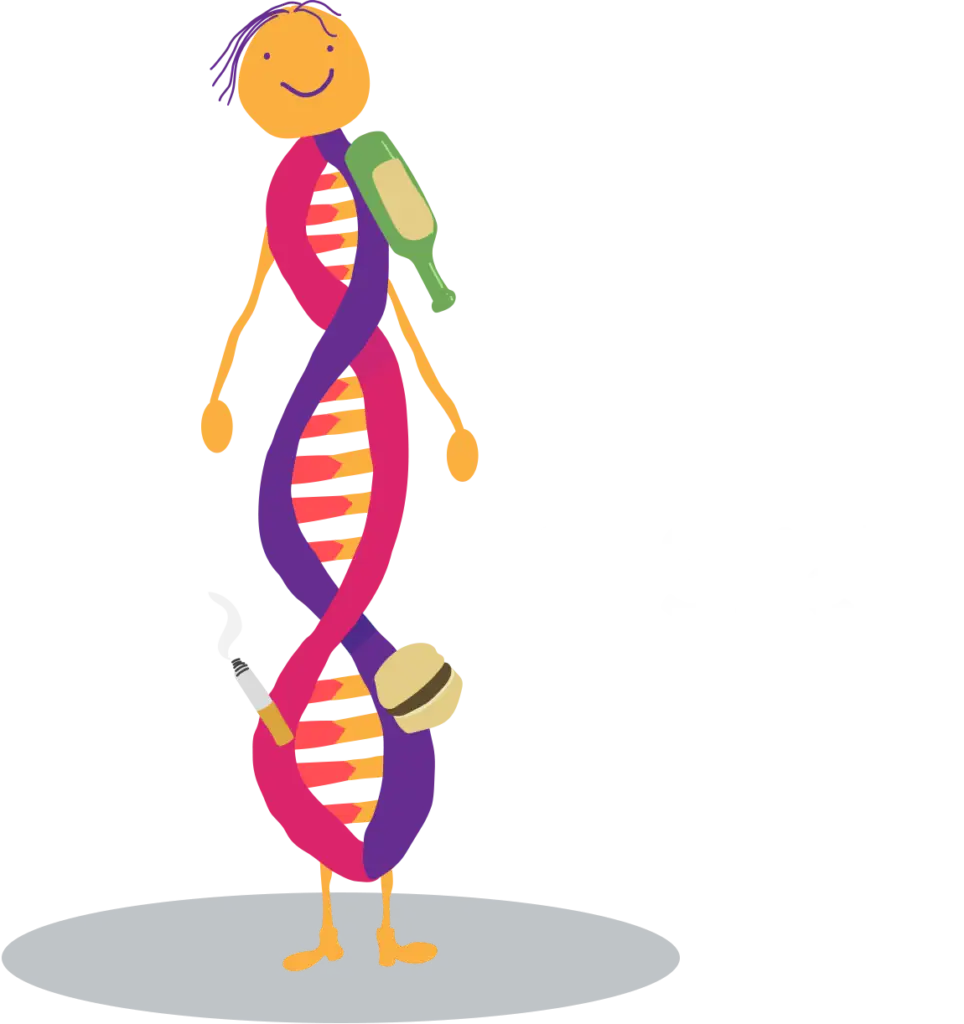
In the old days, he was just Sticks, which made sense given that he is made up of two stick-like DNA strands winding around each other. When Sticks was younger, his strands were pristine. Each letter in the long sequences of DNA was kept shiny and polished, so when the Strand Readers came by, they knew exactly how to interpret the sequence of letters that eventually got turned into proteins.
But then life happened, and because he didn’t make the best choices, much of that life started to stick. Literally. The cigarettes, the sugary foods, the balls of stress, the bottles of wine – slowly, over time, they began to stick to him. Now, when the Strand Readers come by, they have a hard time reading the letters because they’re covered in gunk. So, instead of making the proteins they were supposed to make – the healthy ones – they started making flawed versions. While Life Sticks’ DNA didn’t change, how it got interpreted did. So, now he’s left with a sick cell and a bad name: Life Sticks. And, yes, it definitely does.
What Is happening inside my body?
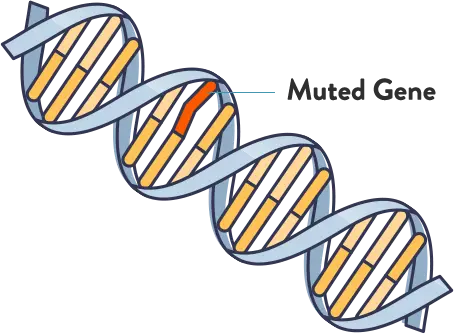
Epigenetic alteration is a proposed mechanism of aging that says that changes in how DNA gets read, or how genes are expressed, account for some of the adverse effects of aging. Our genome consists of a long strand of DNA letters that are “read” and eventually get made into proteins.
Epigenetic alteration is a proposed mechanism of aging that says that changes in how DNA gets read, or how genes are expressed, account for some of the adverse effects of aging. Our genome consists of a long strand of DNA letters that are “read” and eventually get made into proteins.
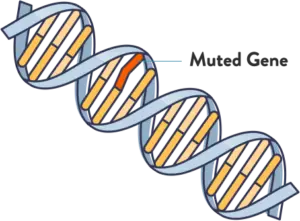
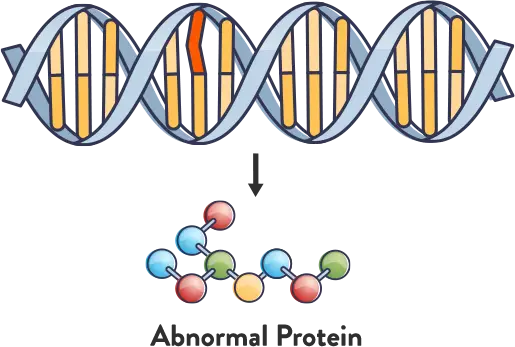
Over time, the DNA can be modified – for example, by adding a methyl group to specific genes – which doesn’t change the DNA sequence but does change how it’s interpreted. These epigenetic changes (changes on top of or around the DNA) occur naturally with aging but can be made much worse with poor lifestyle choices.
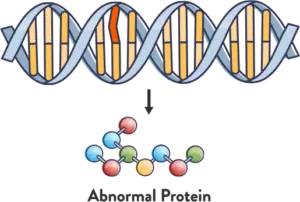
Over time, the DNA can be modified – for example, by adding a methyl group to specific genes – which doesn’t change the DNA sequence but does change how it’s interpreted. These epigenetic changes (changes on top of or around the DNA) occur naturally with aging but can be made much worse with poor lifestyle choices.
Why this matters to you
Changes in our environment can dramatically alter how our genes express themselves, leaving us susceptible to a host of age-related diseases. A common example is carcinogen exposure, which can silence the gene that suppresses tumors. As a result, these cells begin to grow uncontrollably, ultimately leading to cancer.
How the HOP Box Helps: Ca AKG, NR, and Dihydroberberine may help promote healthy epigenetic changes so Life (environmental toxins, poor lifestyle choices, stress) doesn’t “Stick” to the DNA as much as it otherwise might.


